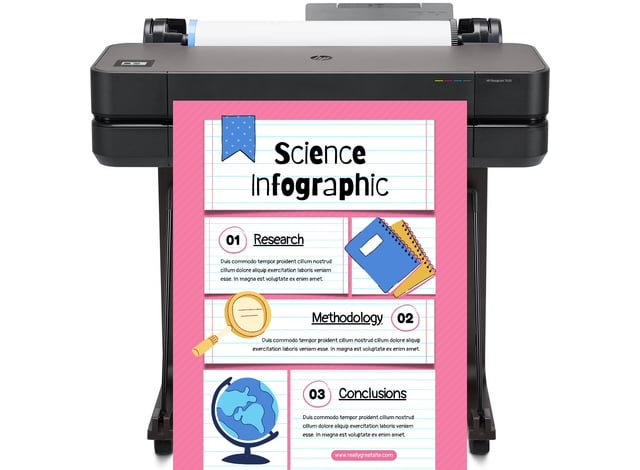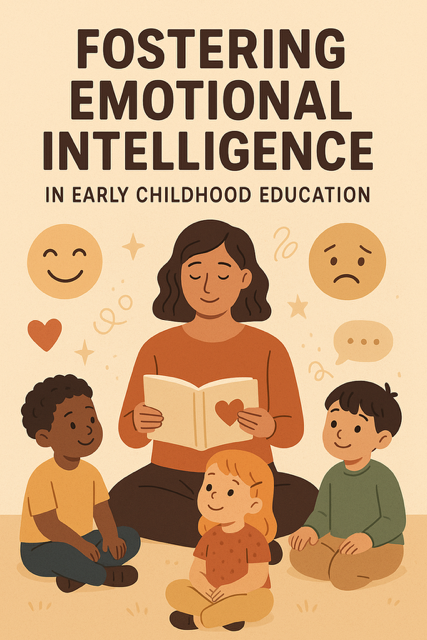
DISCOUNTED EDUCATION PRICING! CALL 1-877-891-8411. We Gladly Accept School Purchase Orders!

In today’s fast-paced world, where academic pressures often overshadow holistic development, fostering emotional intelligence (EI) in young children has emerged as a cornerstone of effective early childhood education. Emotional intelligence, a term popularized by psychologist Daniel Goleman, refers to the ability to recognize, understand, and manage our own emotions while also empathizing with others. For preschoolers and kindergarteners, building these skills early can set the foundation for lifelong success. But why focus on EI at such a tender age? Research consistently shows that children who develop strong emotional competencies are not only happier and more resilient but also perform better academically and socially in the long run. This blog explores practical, play-based methods to teach key EI components—empathy, self-regulation, and social awareness—while delving into the evidence-backed benefits that extend far beyond the classroom.
Early childhood, typically spanning ages 3 to 6, is a critical window for emotional development. During this period, children’s brains are highly plastic, absorbing social cues and emotional patterns that shape their future interactions. Without intentional guidance, kids might struggle with frustration, conflicts, or isolation, leading to challenges later in life. Educators and parents play a pivotal role here, using everyday play to weave in lessons on emotions. Play-based learning isn’t just fun; it’s a natural vehicle for EI growth, allowing children to experiment in safe, low-stakes environments. By integrating these activities, we can nurture well-rounded individuals ready to thrive.
Emotional intelligence encompasses several interrelated skills, but for young children, three stand out: empathy, self-regulation, and social awareness. Empathy involves recognizing and sharing others’ feelings, fostering compassion and reducing bullying behaviors. Self-regulation is about managing one’s emotions, like calming down after a disappointment, which helps with focus and impulse control. Social awareness, meanwhile, means understanding group dynamics, reading nonverbal cues, and respecting diverse perspectives.
These components aren’t innate; they’re learned through experiences. In early education settings, ignoring EI can lead to gaps in development, as children who can’t regulate emotions often face academic hurdles. For instance, a child who lashes out in anger might disrupt learning for everyone, including themselves. Conversely, prioritizing EI creates inclusive classrooms where kids feel valued and supported.
The investment in EI during early childhood yields dividends that last a lifetime, according to numerous studies on social-emotional learning (SEL). SEL programs, which often include EI training, have been shown to boost academic performance by as much as 11 percentile points, with effects persisting into adulthood. A landmark analysis by the Collaborative for Academic, Social, and Emotional Learning (CASEL) reviewed hundreds of studies and found that SEL not only enhances emotional well-being but also improves grades, test scores, and school attendance.
Long-term outcomes are particularly compelling. Children with strong EI are more likely to graduate high school, pursue higher education, and secure stable employment. One study from Yale University highlighted that preschoolers in SEL-enriched programs exhibited better emotion management and interpersonal skills years later, leading to reduced behavioral issues and higher engagement in learning. Another longitudinal research effort tracked participants from preschool through adolescence, revealing that early gains in social-emotional skills predicted superior reading achievement and overall academic success.
On the personal front, EI fosters mental health resilience. Kids who learn to handle stress early are less prone to anxiety and depression in adulthood. A Nature study on early childhood education outcomes noted improvements in problem-solving, anger control, and ethical decision-making, contributing to stronger friendships and community involvement. Moreover, in a post-pandemic era, where isolation has amplified emotional challenges, SEL has proven vital for recovery, with programs showing modest but significant boosts in social skills and school progress. These findings underscore that EI isn’t a “soft skill”—it’s essential for holistic success, equating or even surpassing traditional academic interventions in impact.
Empathy, the bedrock of healthy relationships, can be cultivated through imaginative play that encourages perspective-taking. One effective activity is “Emotion Charades,” where children act out feelings like happiness, sadness, or frustration using facial expressions and body language, while peers guess and discuss why someone might feel that way. This game not only builds vocabulary around emotions but also helps kids recognize them in real life, promoting kindness.
Storytime with empathy-focused books, such as “The Invisible Boy” by Trudy Ludwig, offers another avenue. After reading, facilitate role-playing where children reenact scenes from different characters’ viewpoints, discussing how actions affect others. Art activities like creating “Feelings Collages” from magazines allow kids to visualize emotions, sparking conversations about empathy in daily scenarios.
For younger toddlers, puppet shows work wonders. Using simple puppets, educators can stage conflicts—like two puppets arguing over a toy—and guide children to suggest empathetic resolutions, such as sharing or comforting. These play-based methods, supported by evidence, enhance emotional recognition and reduce aggressive behaviors over time.
Self-regulation empowers children to navigate ups and downs independently, and play provides a low-pressure way to practice. “Freeze Dance” is a classic: Kids dance freely to music but must freeze when it stops, teaching impulse control and body awareness. Extend this by incorporating breathing exercises during freezes, like “balloon breaths” where they imagine inflating a balloon slowly to calm down.
Board games or turn-taking activities, such as building a tower with blocks, encourage waiting and handling disappointment when things don’t go as planned. Sensory play with clay or playdough allows emotional release—squeezing it when frustrated—while discussing feelings, honing fine motor skills alongside regulation.
Mindfulness games like “Simon Says” with emotional twists (e.g., “Simon says show a calm face”) help children differentiate and manage states. Research indicates these activities improve focus and reduce tantrums, leading to better academic productivity.
Social awareness, a vital pillar of emotional intelligence, truly flourishes in the dynamic world of collaborative play. This type of engagement allows young children to immerse themselves in group interactions, where they naturally begin to grasp social norms, appreciate cultural and individual diversity, and develop a deeper understanding of how their actions impact others. By participating in shared activities, kids learn to read subtle social cues, such as body language and tone of voice, while navigating concepts like fairness, inclusion, and respect for differences. These experiences are essential in early childhood, as they help build a foundation for positive relationships, reduce instances of exclusion or conflict, and promote a sense of belonging in diverse settings. Without such opportunities, children might struggle to interpret group dynamics later in life, but through intentional play, educators and parents can guide them toward becoming more attuned and compassionate individuals.
One timeless and effective group activity for cultivating social awareness is “Circle Time Sharing.” In this simple yet powerful setup, children gather in a circle and pass a soft ball, stuffed animal, or talking stick from one to another. The child holding the item shares a snippet about their day—perhaps a happy moment, a new discovery, or even a small frustration—while the others practice patient listening and thoughtful responses. This not only hones active listening skills but also opens windows into peers’ varied experiences, backgrounds, and emotions. For example, hearing about a classmate’s family tradition or a challenge they faced at home encourages kids to recognize and value diversity, sparking discussions on similarities and differences in a supportive environment. Over time, this ritual fosters a classroom culture of mutual respect and empathy, where every voice feels heard and important. For some students, being neurodivergent in the classroom comes with challenges.
Cooperative games, such as building a communal fort with blankets and cushions, require negotiation and reading social cues, fostering inclusivity. Role-playing in dramatic play centers—pretending to be in a restaurant or doctor’s office—teaches cultural sensitivity and teamwork.
Outdoor scavenger hunts in pairs encourage observation of others’ strengths, promoting appreciation for differences. These methods, drawn from SEL frameworks, enhance group dynamics and long-term relational success.
Fostering emotional intelligence (EI) through play-based activities isn’t just a helpful approach—it’s a game-changer. When young children engage in imaginative, collaborative, and emotionally rich play, they’re not only having fun—they’re developing the foundational skills they’ll carry for life. These moments teach them to recognize their own feelings, understand the emotions of others, manage impulses, resolve conflicts, and build meaningful relationships. By intentionally weaving empathy, self-regulation, and social awareness into early learning environments, we do more than support emotional growth—we cultivate the roots of academic success, personal resilience, and compassionate citizenship.
It doesn’t take a complete curriculum overhaul to make a difference. Start small: introduce one emotionally focused activity this week—like a role-playing game, a feelings chart, or a storytelling circle—and watch how it shifts the tone of your classroom or home. The results may be subtle at first, but over time, these experiences shape confident, empathetic, and emotionally intelligent individuals. The seeds of emotional intelligence we plant in early childhood don’t just grow—they flourish into the empowered, emotionally capable adults our future needs.